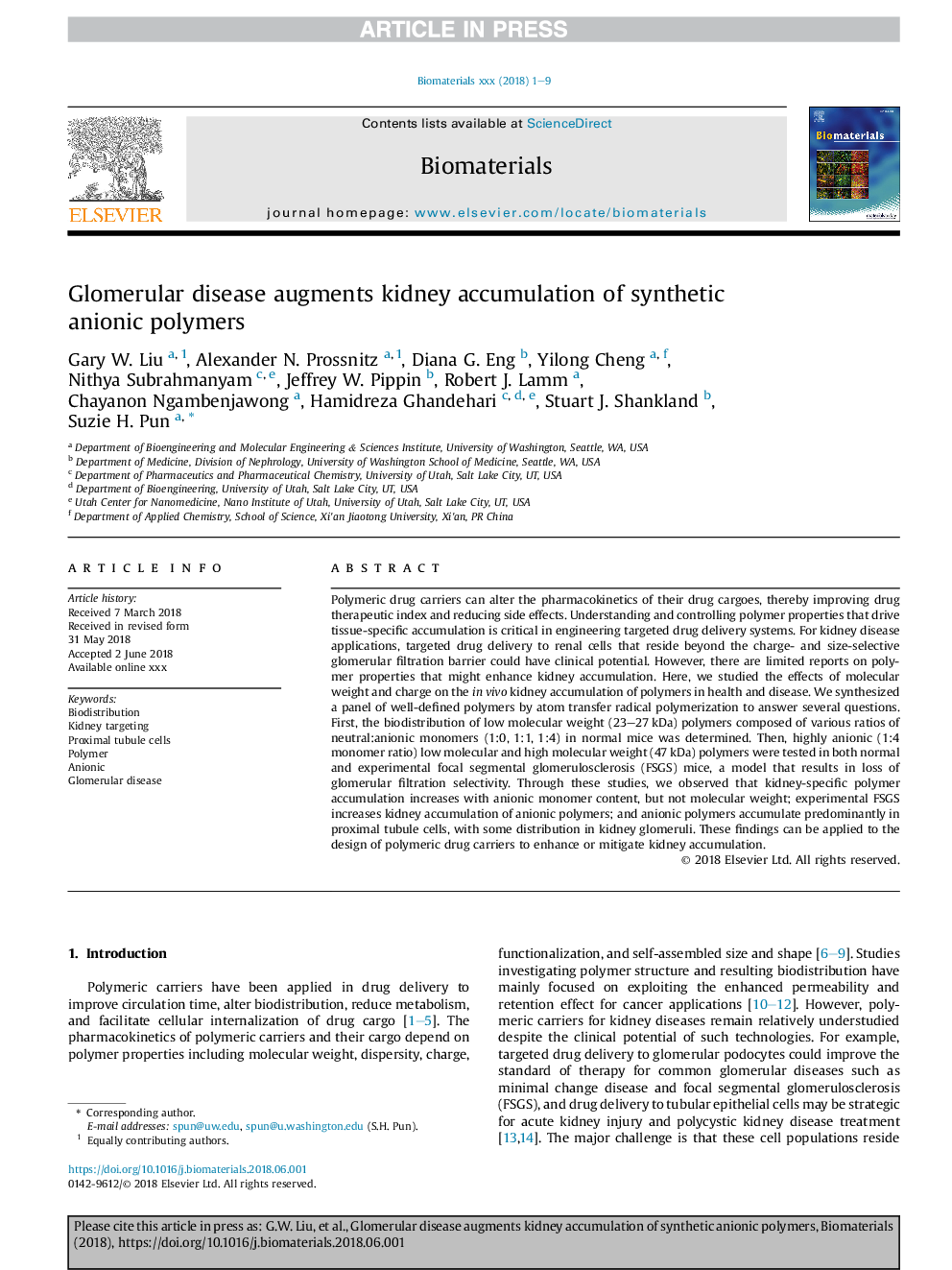| Article ID | Journal | Published Year | Pages | File Type |
|---|---|---|---|---|
| 6484383 | Biomaterials | 2018 | 9 Pages |
Abstract
Polymeric drug carriers can alter the pharmacokinetics of their drug cargoes, thereby improving drug therapeutic index and reducing side effects. Understanding and controlling polymer properties that drive tissue-specific accumulation is critical in engineering targeted drug delivery systems. For kidney disease applications, targeted drug delivery to renal cells that reside beyond the charge- and size-selective glomerular filtration barrier could have clinical potential. However, there are limited reports on polymer properties that might enhance kidney accumulation. Here, we studied the effects of molecular weight and charge on the in vivo kidney accumulation of polymers in health and disease. We synthesized a panel of well-defined polymers by atom transfer radical polymerization to answer several questions. First, the biodistribution of low molecular weight (23-27â¯kDa) polymers composed of various ratios of neutral:anionic monomers (1:0, 1:1, 1:4) in normal mice was determined. Then, highly anionic (1:4 monomer ratio) low molecular and high molecular weight (47â¯kDa) polymers were tested in both normal and experimental focal segmental glomerulosclerosis (FSGS) mice, a model that results in loss of glomerular filtration selectivity. Through these studies, we observed that kidney-specific polymer accumulation increases with anionic monomer content, but not molecular weight; experimental FSGS increases kidney accumulation of anionic polymers; and anionic polymers accumulate predominantly in proximal tubule cells, with some distribution in kidney glomeruli. These findings can be applied to the design of polymeric drug carriers to enhance or mitigate kidney accumulation.
Related Topics
Physical Sciences and Engineering
Chemical Engineering
Bioengineering
Authors
Gary W. Liu, Alexander N. Prossnitz, Diana G. Eng, Yilong Cheng, Nithya Subrahmanyam, Jeffrey W. Pippin, Robert J. Lamm, Chayanon Ngambenjawong, Hamidreza Ghandehari, Stuart J. Shankland, Suzie H. Pun,
